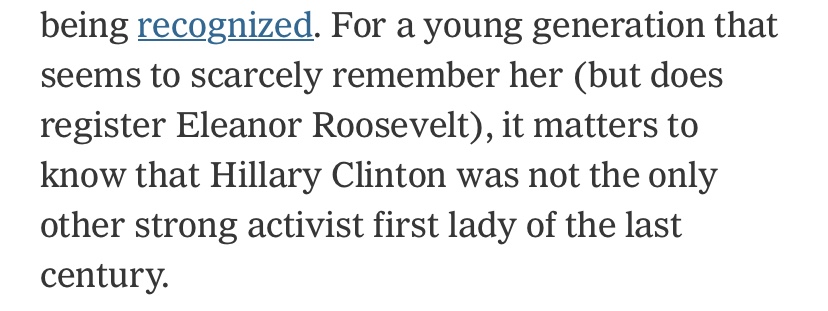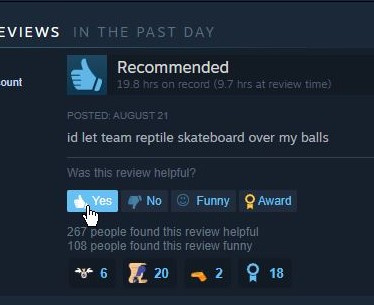Category: HBlog
I made the mistake of adding tech feeds to my RSS reader and now I’m just mad all the time.
There was a time, back in the 00s or so, when I kept up to date on a lot of tech news. I spent the time trying to follow trends in web development and mobile technology and apps. It was important to my work, but part of my overall interest in how the Internet was being integrated into our daily lives.
Once I moved away from tech focused work and into education, I let those news feeds go. I purged myself of latest developments and relied on larger, mainstream news outlets to inform me about the technology that would impact my daily life. Yet, as I started teaching first-year composition, I realized (we all realized) that being up-to-date on the technology our students were using (not always by choice either) would make our discussions surrounding critical thinking that much more relevant. Trust me, when ChatGPT burst on to the scene, I suggested we lean into it, teaching it as a new tool that students can use in their ever increasing arsenal of technological apps that can help them… wait. Help them what exactly? What was I supposed to be teaching them? More on that in a moment.
As I’ve reinstated my tech RSS feeds, I find myself getting more and more suspicious about the proliferation of AI. While I’ve not been totally receptive to the computerization of our automobiles, nor the subscription model of everything, I still want to be able to glean the direction personal technology is headed, and, if Microsoft’s recent announcements are any indication, the future is AI.
If you follow my links of interest at all, you can see where this is going?
Who wants this? Why are we being told that we want this? Every time I read about another AI-enhanced laptop or an app that’s I’ve been using suddenly wants me to incorporate their AI model into my workflow, I get frustrated.
If I’m not building up the critical skills to summarize an article (and most public-facing articles are woefully short and simplistic already), what am I doing with the time AI is saving?
What’s the point of learning discernment and curation if I never skip over Google’s AI-created search summaries at the top of its results page? (Shouldn’t have made Google suck, yeah?)
How am I supposed to teach critical thinking skills if all the little ways in which we think every day are being eaten up by language learning models that have dubious bias built in and don’t have an understanding of a ham sandwich outside the fact that sometimes it’s mentioned next to mustard?
More and more I feel like we’re heading into a direction where we will teach two ways of existing cognitively in our technological future: 1) a way to prompt AI to yield results that save us from doing labor or gaining mastery; and 2) a way to avoid the AI altogether and create bare bones text and art in a way that hides it from the upcoming singular cloud. Both feel exhausting.
Meanwhile, a bunch of narcissistic shitheads are at the controls of the future.
- Photo credit: Image by StartupStockPhotos from Pixabay
My commute is killing me, maybe
Literally, according to any health article from the early 00s through 2010s. We all are sitting too much due to the transfer of our work from moving to sitting. We work longer hours and drive farther to reach those jobs. And since sitting is the new smoking, and I quit smoking (nearly six years now), then all of that was for naught since I’m driving an hour each way to campus.
To be fair, I enjoy this time, this relaxing death drive into oblivion (apparently). I listen to podcasts or Kpop. Sometimes I play one of the lo-fi hip hop channels as I drive under the canopy of trees that line the back roads. Many times I don’t listen to anything at all and just ride to school or to home in silence.
Well, that’s not exactly true.
I wrote a couple of poems on the way home one day. I pulled over in a church parking lot to dictate them into my phone. This happens a lot when I don’t listen to anything in the car. Writing is something that my brain does automatically, sort of. I always have a part of my mind that’s narrating what I’m doing, what I’m feeling, shuffling around what I’m thinking. I’ve noticed in all the times I’ve had long commutes, that the writing part of my brain really lights up when the muscle memory kicks in and the ride is smooth.
This is one of the best parts about my commute and I know where all the safe places to pull over are in every stretch of road.
But those silences are also potential pitfalls. I’m not sure if it’s the ADHD, or the only child, but I talk to myself. Not just muttering, but full on conversations with, well, no one. If you could listen in, it would sound like I was talking to someone, because I pause and react and laugh and the invisible person in my passenger seat.
I know what you’re thinking (maybe), but it’s not an exercise in rehashing conversations, or arguing where I’m always right. I am often wrong. I am wrong a lot. In fact, it’s kind of weird how often I discover I’m wrong when the only person I’m talking to is me.
What I am is basically doing is journaling. I’m doing the “writing is thinking” without being able to use my hands. If I could trust my phone not too lock half way through a monologue, I would record my voice with the intention of transcribing when I got home.
I would never transcribe it though.

It’s best that some of these conversations stay in the stale-coffee smell of Big Red (my car.) Some of those are big releases of frustration and some of them are vile, mean, mostly focused at myself. I know that I am purging negative thoughts this way before I come into contact with anyone else, but I think that sometimes the release isn’t 100% complete.
There is residue, like old crumbs woven into the seat upholstery. Those feelings I don’t write down, not with any depth linger, and I wonder if I need to pull off into that church parking lot and disgorge.
A note: I have done this kind of talking to myself for as long as I have memory. I have heard anecdotes of my imaginary friend (David from Sesame Street, if you need to know) and my conversations in my childhood room. This is one of the ways I process the world. It has always felt a bit strange, but also a bit real. My mind feels realer in these moments than when I’m being a proper person.
Anyway, I don’t think that too much introspection is good for us. I think there are benefits to being a bit unaware of yourself. Self-awareness should always be powered on when you realize you’re being hurtful, or negative, or if you feel that the universe has it out for you (it does not, sorry.) But I think switching that awareness off is best when you’re with (good) friends, or enjoying your hobbies, or laughing. Never be aware of your laughter. Projectile laugh all over the place.
When I originally came up with this idea for a post, I think I had a different plan. I think I wanted to talk about the time that it takes away from my responsibilities, or the fact that taking a walking break halfway is logistically hard to do, since it just adds time to my commute. I don’t really remember what blog I wanted to write. But this is the one I wanted to write now.
The plight of the digital hoarder
Reading Charlie Warzel’s latest article in The Atlantic brought up one of those situations that I’ve had in the back of my mind. You know the one that sometimes rears up and says “halloo” and you’re like, “Yes, that’s something I should do something about, or consider more thoughtfully,” right before you’re distracted with taxes or cats or something much more important to the present moment.
My digital inventory is something I’ve been thinking about for a while. I have so many files saved in so many places, it really is a roadmap to my 30+ years online. I have a couple of external hard drives and all of the computers I’ve owned since 2002, just waiting to be scavenged. I can’t tell you what I’ve got saved there, and that’s the problem.
I have my entire thesis, notes, PDFs, and versions saved on Google Drive. My dissertation is moving into the folder next door. I have a ton of audiobooks saved on a red Western Digital Passbook that doesn’t like to keep ahold of its cord. There’s an old laptop that may have some embarrassing chat logs saved on it (not embarrassing to me, but still). And a host of other cloud accounts that have pieces of me scattered through the Intarwebs.
This is the first step to having a functioning teleporter: the atomizing of a human life, one jpeg at a time.
My life runs on a semester schedule, so there may be some time available this summer (while dissertation writing) to make a start on curating and culling this unwieldy collection. I think it would be interesting to go through every file, every photo, every stray bit and byte that makes up a good chunk of who I’ve built myself to be. So many little corners of the internet hold the me-equivalent of that stray 2×4, a half-full can of primer, and some brass bracket from the 1950s. I may need that GIF one day.

Without children to burden with my digital legacy (my nephew would be the only one I’d trust, and I like him too much to make him go through my “SORT THIS SHIT” folders), I often wonder who am I saving all of this stuff for? Did that snippet of a poem from 2011 really mean something to me, or is it just one step on the path to becoming a mediocre writer? I have twenty photos of a stapler from my old writing center because I thought it would be funny to give it its own Facebook page. (It was funny, for a while, but then I forgot about it.)
If I really think about it, I’ve saved all of this, every last byte, for me and for right now. Perhaps, instead of waiting for circumstance to bring the borders of my life into clearer view, I should take this opportunity to “sort this shit” now and keep only what is a reflection of who I was, and who I aim to become. Perhaps, I will make a multimodal journal of my life so far.
I just thought of this now, writing this post (because writing is thinking, friends) and this could be a nice project for this blog.
What am I even doing anymore?
I haven’t had an idea for a post in a while. I’ve been writing, not necessarily the things I’m supposed to be writing, but writing nonetheless. I have a year’s worth of short bits in my journal that have given me a new outlook on my life.
I don’t change much, really.
I think that it’s hard to see a whole year unless you’ve chronicled it in some way, whether in a scrapbook a bullet journal, or even your photo albums on your phone. Without that easy avenue to look back, you’ll never leave the path you’ve been on for, well, your whole life.
By having a link that forces me to see what I wrote on this day last year, I can spend a moment lamenting over how the obstacles and complaints are still the same and that, whether by my own fear or others’ handiwork, I have not moved forward as much as I’d like. Alas, reflection is not always a positive experience, but it is always useful.
Diss-combobulated
I am supposed to be writing the revision of my dissertation proposal, but I am a bit lacking in the motivation department. I even set up an appointment with my diss chair to get me moving and, maybe when it is imminent (as in that day) I will finally get something workable on the page. I would like to not be like this. I don’t think it’s fair to me or my chair.
How much do you want to hear about this journey? I wonder if it would be helpful to future Ph.D.s to hear about my experience. I know I found a lot of advice online (for reasons) and wouldn’t have made it this far without it.
However, it’s not a path I would recommend to most. It is not necessarily healthy, mentally or physically, and the rigor of the work is largely performative. There are small movements, particularly in the humanities, of making the PhD process more a communal practice instead of an individual struggle. They are slow though and largely rooted in the departments outside STEM.
This is my sixth year in the PhD program. I am a bit jaded now, which is why I wonder if it’s time to go. Not leave the program, but leave the fellowship, find full-time work doing…something…and finish the dissertation on the side.
I love working with students. I love reading their writing. Teaching, though, is changing and I’m not sure I want to change with it. I’ll talk more about that later.
For now, I think I will try to post more often and talk about school, my interests, and various things. I am not interested in creating a personal brand, though I am not completely against creating merch. (But I’ll probably forget to.)
Just say… wait?

The fact that articles like this don’t refer to Nancy Reagan as an activist is how well conservatives have fooled everyone into thinking that what they do isn’t radical or activism.
https://www.nytimes.com/2023/11/21/opinion/rosalynn-carter-first-lady-politics.html
Shouts from the top of the Ivory Tower
Certainly, not all students wear these moral blinders. But the fact* that many students do, and that they are at some of the nation’s leading colleges and universities, should be a cause for profound concern across higher education.
-Ezekiel J. Emanuel “Hamas and the Moral Deficiencies of a Liberal Education – The New York Times“
*Where is that fact located, Professor? Could you cite your sources? Let’s keep focusing on the plight of liberal education by shaming 34 Harvard students for exercising their right to free speech. Would the good professor like to address food insecurity on campuses? How about other universities are slashing major parts of that “liberal education” he is crying about? I think the Vice Provost (again, what even is that job?) wanted to be mad at the Harvard students, but gets to yell about it in The New York Fucking Times.
We have left these students a world on the brink of death, destruction, and despair.
We have all failed them and they are letting us know.
Don’t talk about tech and NOT credit authors
This short section of The Atlantic Daily has the following sentence:
“The term metaverse was coined in a 1992 science-fiction novel titled Snow Crash. (The book also helped popularize the term avatar, to refer to digital selves.)”
The book, not Neal Stephenson, the person who happened to author the book, but the book. If we want to talk about the future and technology and don’t address the erasure of the humans behind the technology (and the Book inspirations of its ideas) then you’re part of the problem.
Added to Wishlist
It’s important to read player reviews before buying a video game.

Welp, I’m back
Sorry about the break. I really did think I could write a blog post about each day of the written portion of my comprehensive exams. Friends, I could not. I had no idea how much energy that was going to take out of me, including the one-hour commute each way. The day I wrote 5000 words, I slept the sleep of the dead. But, I’ve handed in my answers and it’s in the hands of my committee now.

How do I feel? Terrible. Well, not today. Over the last day or two I have settled down, but where I thought I would feel relief I only felt shame. I came out of the process feeling stupid, unprepared, more than an imposter, but a charlatan. I was (and kinda am) still thoroughly convinced that my oral exam will just be my committed expressing this disdain and then handing me packing boxes to clear my things and go. I was exhausted on Friday and cried. I blew up on Saturday morning and cried. Today, no crying, but still anxiety.
I’m going to stay as busy as possible this week so I don’t have time to think about anything negative. I will listen to every Agatha Christie book my library has and catch up on all my manga. Yah. That’s the plan.
